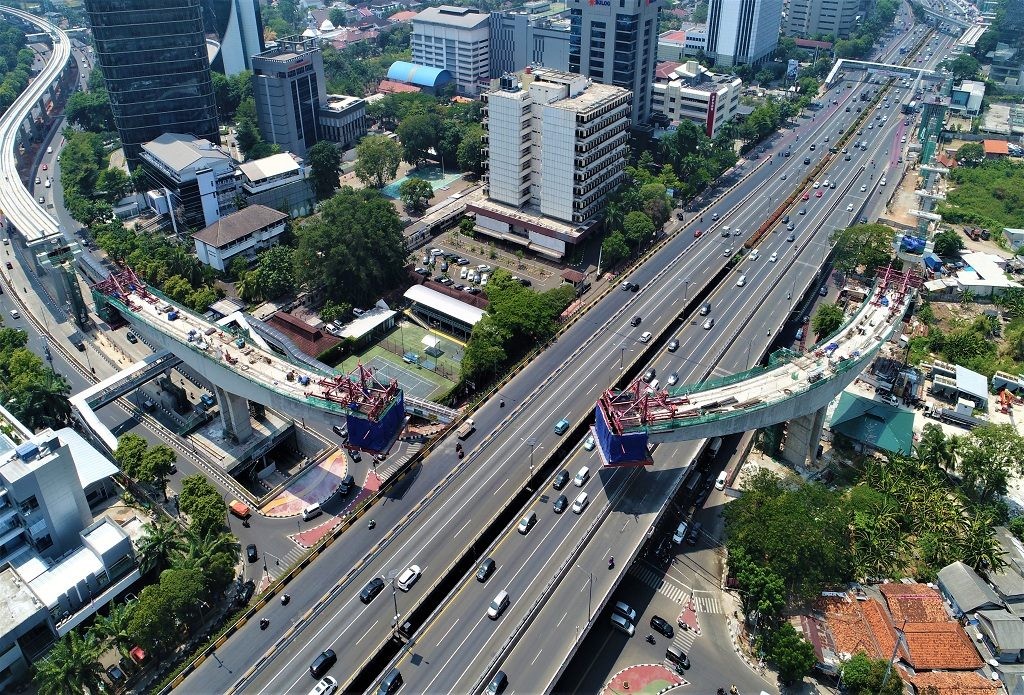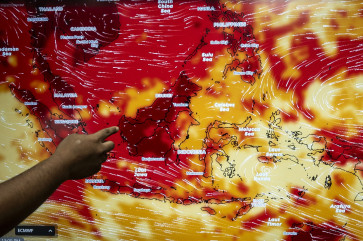Indonesia’s economy may contract 0.4% in worst case scenario: Sri Mulyani
Change Size
 Jakarta's light rail system under construction. (Courtesy of LRT Jabodebek/-)
Jakarta's light rail system under construction. (Courtesy of LRT Jabodebek/-)
T
he government has outlined a worst-case scenario where the domestic economy contracts by 0.4 percent as the COVID-19 pandemic arrests swaths of economic activity and poses recessionary risks to Southeast Asia’s largest economy.
Finance Minister Sri Mulyani Indrawati said the baseline scenario was for economic growth to sit at 2.3 percent this year as trade contracted and consumption and investment growth slowed.
“We are forward-looking, so the steps we’re taking are preventive measures,” Sri Mulyani said at a media briefing on Wednesday. COVID-19 had disrupted household activities, hampered firms’ sales and revenue and had hit micro, small and medium businesses, she added.
President Joko “Jokowi” Widodo announced Rp 405.1 trillion (US$24.8 billion) in extra spending on Tuesday to finance Indonesia’s fight against COVID-19. Rp 150 trillion will be set aside for economic recovery programs, Rp 75 trillion for healthcare spending, Rp 110 trillion for social protection and Rp 70.1 trillion for tax incentives and credits for enterprises.
A new Government Regulation in lieu of law (Perppu) will be issued to enable Bank Indonesia (BI) to finance the budget by buying government bonds directly at auction. BI was previously only allowed to buy government debt in the secondary market.
Read also: Explainer: BI to throw lifeline to Indonesia’s economy to fight COVID-19
“Extraordinary times require extraordinary policy and action,” Sri Mulyani said, adding that the measures were expected to protect the national economy. Indonesia’s economy grew by 5.02 percent last year, already the slowest in four years. The government’s latest economic growth projection marks the weakest position for the economy since the aftermath of the 1998 Asian financial crisis.
The World Bank has estimated that the COVID-19 pandemic will significantly slow Indonesia’s economic growth this year – 2.1 percent in 2020, down from the initially projected 5.1 percent – if the situation starts to normalize by June. The Washington-based bank has warned that the economy may contract this year if the pandemic continues into the third quarter.
World Bank East Asia Pacific chief economist Aaditya Mattoo said the pandemic required drastic action, such as strong social distancing and travel restrictions, adding that the government had to provide compensation for informal-sector workers and credit liquidity transfers to firms.
“These are complementary economic measures that, in the short run, when people can neither work nor consume as freely as they would have, are absolutely essential to minimize the economic pain and prevent short-term economic shocks,” Mattoo said.
As of Monday afternoon 1,528 cases of COVID-19 had been confirmed in Indonesia with 136 deaths. The government has decided to impose stricter rules on social distancing, coupled with “civil emergency measures”.









